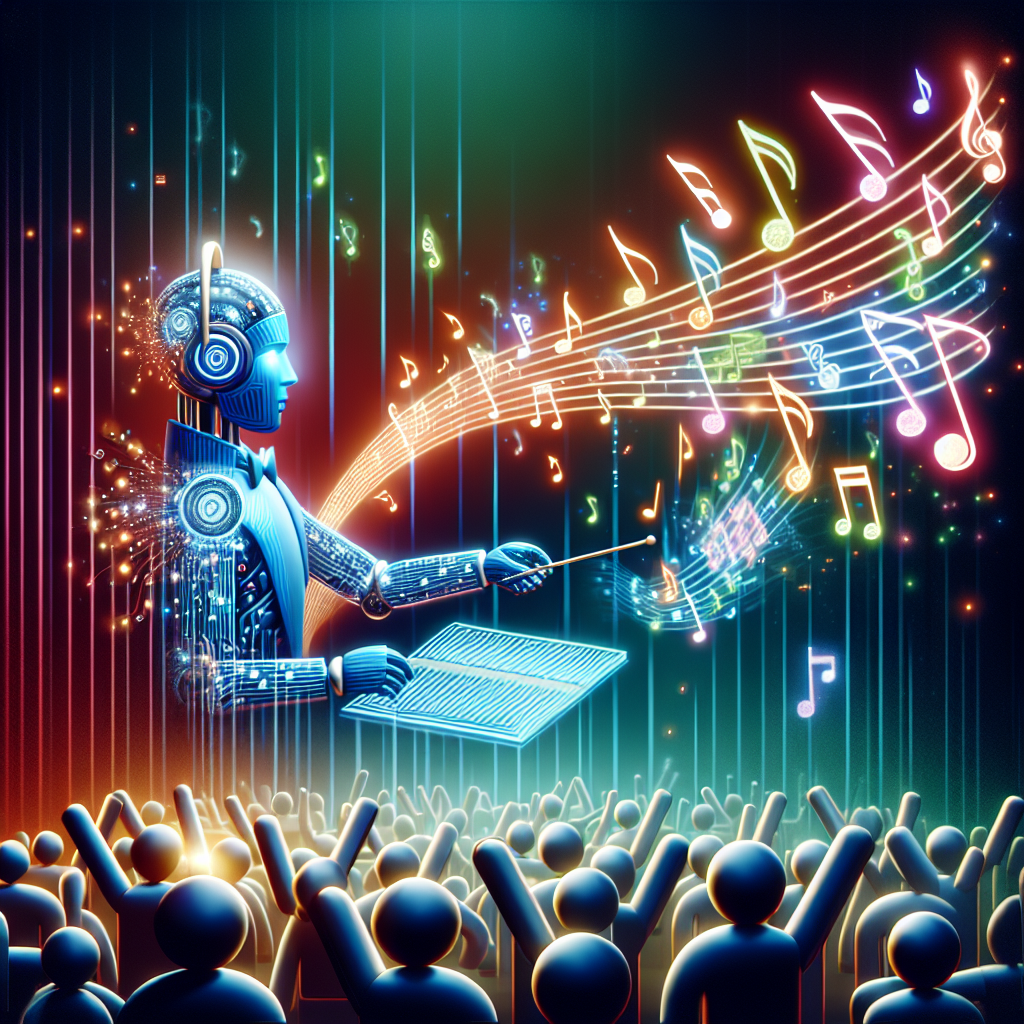AI in Music: Enhancing the Artist-Audience Relationship
Artificial Intelligence (AI) has been making significant strides in various industries, including music. AI technology is being used to enhance the artist-audience relationship in ways that were previously unimaginable. From creating personalized music recommendations to composing original songs, AI is revolutionizing the music industry and changing the way artists and audiences interact. In this article, we will explore how AI is being used in music and how it is enhancing the artist-audience relationship.
AI in Music Creation
One of the most exciting applications of AI in music is its ability to create original compositions. AI algorithms can analyze vast amounts of music data and learn patterns and styles to generate new music. This has opened up new possibilities for artists who may be looking for inspiration or struggling with writer’s block. AI can help them create new melodies, chord progressions, and even lyrics.
AI music composition tools such as AIVA, Amper Music, and Google’s Magenta are already making waves in the music industry. These tools can generate music in various genres and styles, allowing artists to experiment and push the boundaries of their creativity. AI-generated music can also be used in film scoring, video games, and other multimedia projects, providing a cost-effective and efficient solution for content creators.
AI in Music Discovery
Another way AI is enhancing the artist-audience relationship is through personalized music recommendations. Streaming platforms such as Spotify and Apple Music use AI algorithms to analyze users’ listening habits and preferences to curate personalized playlists and recommendations. This not only helps users discover new music but also helps artists reach a wider audience.
By leveraging AI technology, artists can connect with fans who may have similar tastes in music, leading to increased engagement and loyalty. AI can also help artists understand their audience better by providing insights into their listening habits, demographics, and preferences. This information can be invaluable for artists looking to tailor their music and marketing strategies to attract and retain fans.
AI in Music Production
AI is also revolutionizing the music production process. From vocal tuning and audio mastering to sound design and mixing, AI tools are streamlining and automating tasks that were previously time-consuming and labor-intensive. For example, tools like LANDR and iZotope’s Ozone use AI algorithms to analyze and enhance audio tracks, ensuring a professional and polished sound.
AI-powered virtual instruments and synthesizers are also gaining popularity among musicians and producers. These tools can generate realistic and expressive sounds, allowing artists to create music without the need for expensive equipment or studio time. AI can also help artists collaborate remotely by providing real-time feedback and suggestions for improving their compositions.
FAQs
Q: Can AI replace human musicians?
A: While AI technology has made significant advancements in music creation and production, it is unlikely to replace human musicians entirely. AI can assist artists in generating ideas, composing music, and enhancing production, but it lacks the emotional depth and creativity that human musicians bring to their performances.
Q: How can artists benefit from using AI in music?
A: Artists can benefit from using AI in music in several ways, including generating new ideas, reaching a wider audience, and streamlining the production process. AI can help artists overcome creative blocks, connect with fans, and produce high-quality music more efficiently.
Q: Is AI in music ethical?
A: The ethical implications of AI in music are still being debated. Some argue that AI technology can lead to job displacement and the devaluation of human creativity, while others believe that AI can enhance artistic expression and collaboration. It is important for artists and industry stakeholders to consider the ethical implications of using AI in music and to prioritize the well-being of artists and audiences.
Q: How can audiences benefit from AI in music?
A: Audiences can benefit from AI in music by discovering new artists and genres, receiving personalized recommendations, and experiencing innovative and immersive musical experiences. AI technology can enhance the listening experience for audiences and create new opportunities for engagement and interaction with artists.
In conclusion, AI technology is transforming the music industry and enhancing the artist-audience relationship in unprecedented ways. From creating original compositions to personalized recommendations, AI is revolutionizing how artists create, distribute, and connect with their audience. By embracing AI technology, artists can unlock new creative possibilities and engage with fans in ways that were previously unimaginable. As AI continues to evolve, the future of music looks brighter and more exciting than ever before.

